Best Litecoin Wallets in 2024-2025 for Beginners and Advanced
Choosing the right wallet for Litecoin (LTC) is essential for managing your assets securely and efficiently. With numerous Litecoin wallet options available, it’s crucial to understand each type’s various features and benefits. Here’s a comprehensive guide to help you select the best wallet for your LTC needs in 2024.
What is Litecoin?
Litecoin is a peer-to-peer cryptocurrency created by Charlie Lee in 2011. Often referred to as the “silver” to Bitcoin’s “gold,” Litecoin offers faster transaction times and a more efficient algorithm than Bitcoin. Its primary goal is to provide a lightweight and cost-effective alternative for everyday transactions. With its active development and growing adoption, Litecoin remains a popular choice for investors and users.
What is a Crypto Wallet?
A crypto wallet is a digital tool that allows users to store, send, and receive cryptocurrencies like Litecoin. These wallets manage private and public keys—the critical components required to access and transact on the blockchain. Crypto wallets come in various forms, including hardware wallets, software wallets, and paper wallets. Each type offers different levels of security, convenience, and control over your assets. The primary purpose of a crypto wallet is to safeguard your private keys, ensuring that only you can access and manage your cryptocurrency holdings.
Types of Litecoin Wallets
When selecting a wallet for Litecoin, it’s essential to understand the different types available:
- Hardware Wallets
Hardware wallets, like the Ledger Nano X, provide the highest level of security by storing your private keys offline. This makes them immune to online hacking attempts. These wallets are ideal for long-term storage and large amounts of Litecoin.
- Software Wallets
Software wallets are applications you can install on your mobile device, desktop, or as a browser extension. These wallets, such as Walletverse, offer a balance between security and convenience, allowing for easy access to your funds.
- Web Wallets
Web wallets are online platforms that enable you to access your Litecoin through a web browser. While convenient, they are generally less secure than hardware or software wallets, as they rely on third-party servers to manage your keys.
- Paper Wallets
Paper wallets are physical documents containing your public and private keys. They offer an offline storage option but can be prone to physical damage or loss. Paper wallets are typically used to store Litecoin in the long term.
How to Choose the Best Crypto Wallet for Litecoin
Selecting the ideal Litecoin (LTC) wallet means balancing security, usability, and functionality based on your needs. Start by considering what features are most important for your use case:
- Security. Prioritize wallets that offer advanced security features like biometric authentication and encryption. This ensures your LTC is protected from unauthorized access and cyber threats.
- Device compatibility. Choose a wallet that works across different platforms—mobile, desktop, or web—so you can conveniently manage your Litecoin from any device.
- Functionalities. Evaluate the wallet’s features, such as Litecoin staking, support for multiple cryptocurrencies, and integration with decentralized applications (dApps). Depending on your cryptocurrency activities, these can add significant value.
- Ease of use. Choose a wallet with an intuitive interface that simplifies transactions and management, making it easier to manage your Litecoin without unnecessary complexity.
- Backup and recovery. Ensure the wallet offers reliable backup and recovery options. This feature is crucial for protecting your assets in case of device loss or damage.
Focusing on these aspects can help you find a wallet that aligns with your specific needs and preferences, ensuring a smooth and secure experience with your Litecoin investments.
Top 5 Best Litecoin Crypto Wallets in 2024
1. Walletverse
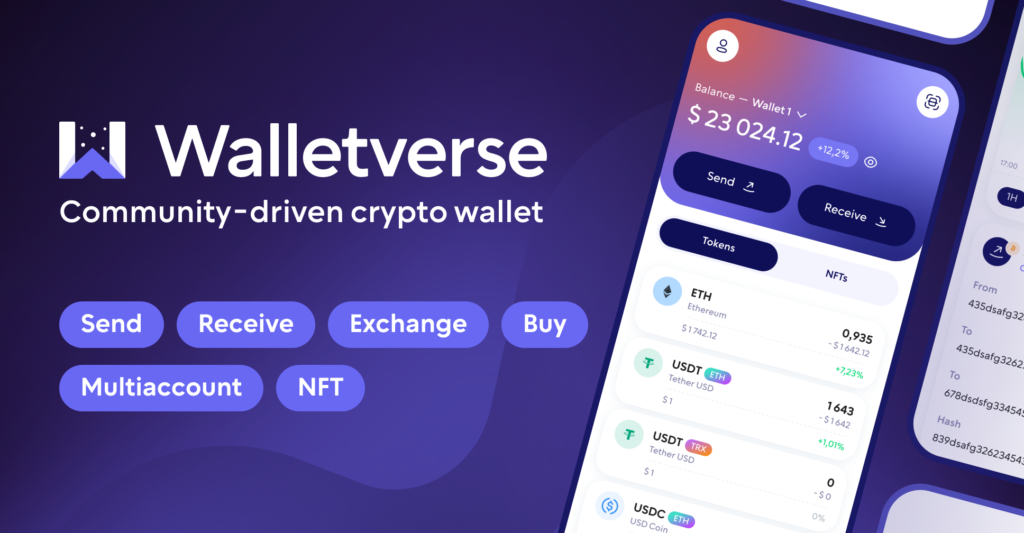
Walletverse is a cutting-edge self-custodial DeFi wallet that supports Litecoin and other cryptocurrencies.
Comprehensive crypto management, integration with DEX aggregators, and advanced security features, including biometric authentication and automatic backups. It supports many cryptocurrencies and offers seamless fiat-to-crypto transactions through partnerships like Changelly.
2. Ledger Nano X
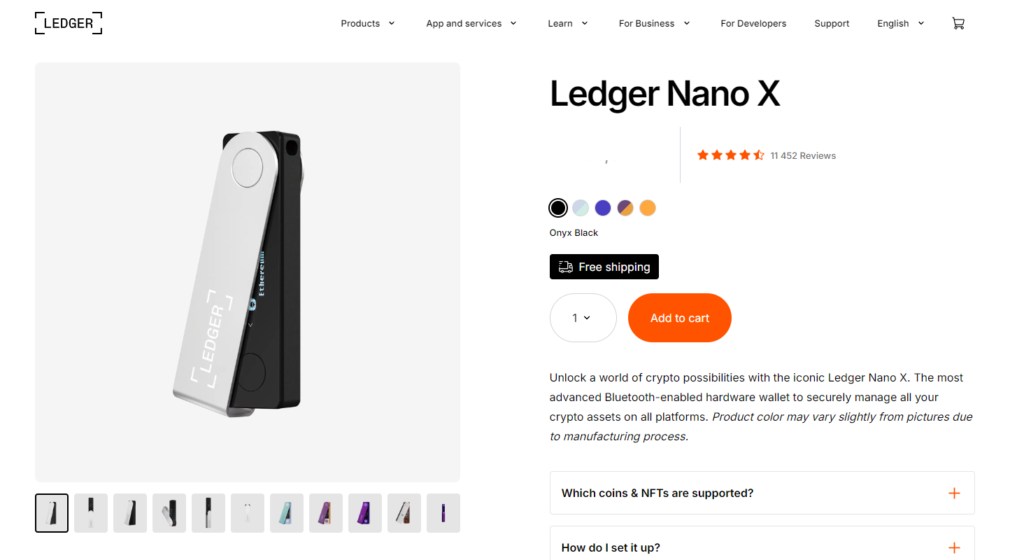
Ledger Nano X is a leading hardware wallet known for its advanced security features.
Provides secure offline storage, multi-currency support, and Bluetooth connectivity for convenient management.
3. Exodus Wallet
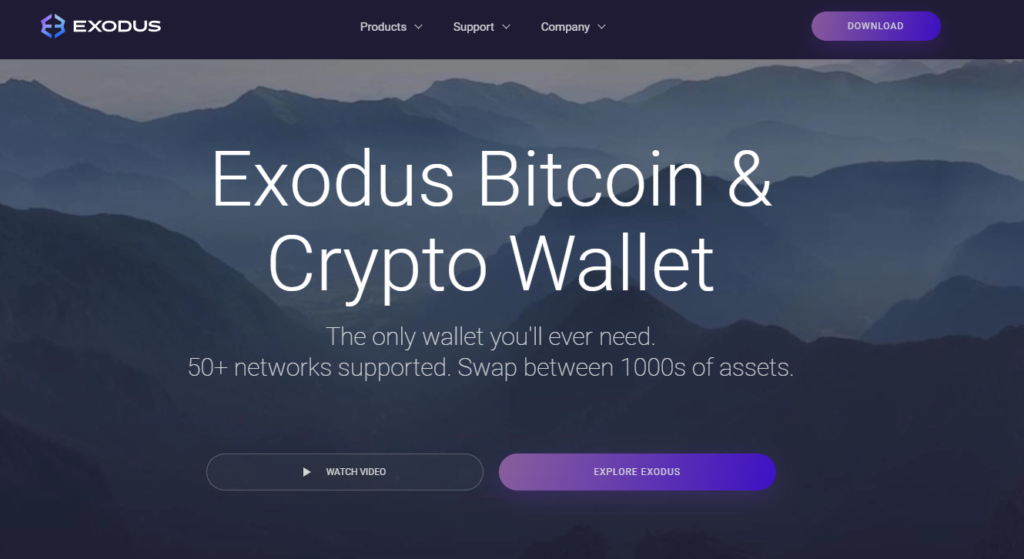
Exodus Wallet offers a versatile and user-friendly option for managing Litecoin and other assets. It has a user-friendly interface, supports multiple cryptocurrencies, and integrates with hardware wallets.
4. Trust Wallet
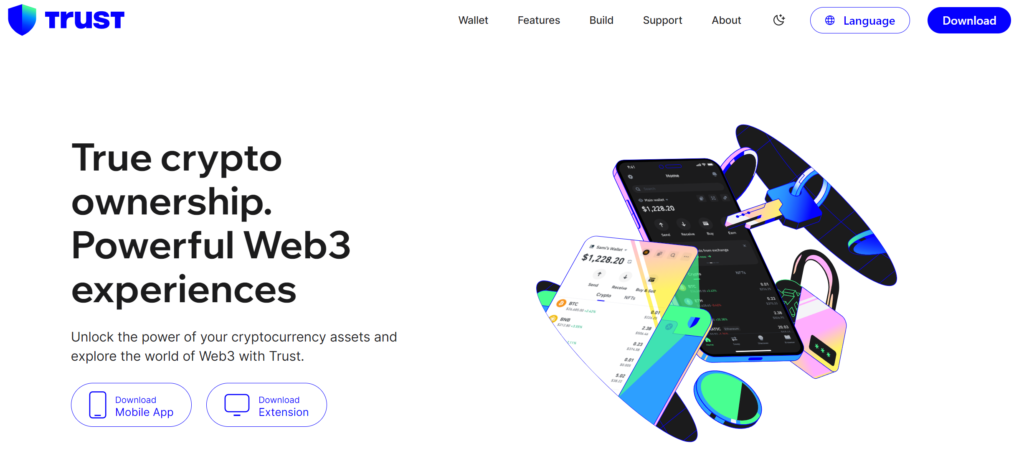
Trust Wallet is a mobile wallet that supports Litecoin and many other cryptocurrencies.
Easy to use, integrates with decentralized applications (dApps), and offers secure private key management.
5. Litecoin Core
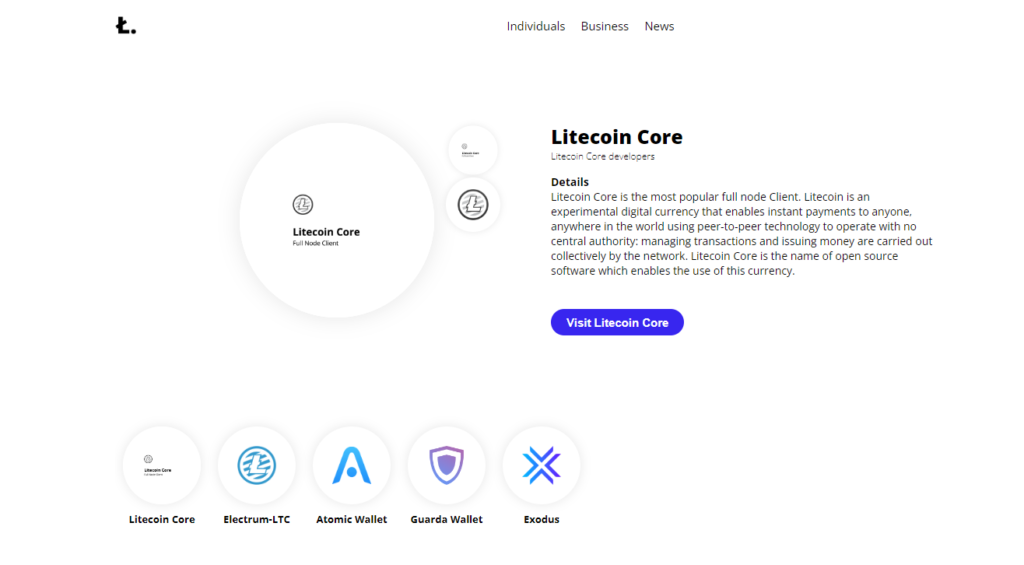
Litecoin Core is a full-node desktop wallet offering comprehensive control over your Litecoin.
Complete control over private keys, full node support, and robust security.
Is Litecoin a Good Investment?
When considering Litecoin as an investment, several factors come into play. Litecoin has established itself as one of the oldest and most reliable cryptocurrencies in the market. Its faster transaction times, lower fees, and active development contribute to its appeal. Moreover, Litecoin’s strong liquidity ensures that it remains a viable option on significant exchanges. However, like any cryptocurrency, Litecoin’s price is subject to market volatility. As such, it’s essential to evaluate your risk tolerance and investment goals before committing to Litecoin as part of your portfolio. For those looking for a well-established and actively developed cryptocurrency, Litecoin can be a solid investment choice.
FAQ
To purchase Litecoin (LTC) in a crypto wallet:
- Open your wallet app or platform that supports Litecoin.
- Navigate to the “Buy” section within the app and select Litecoin from the list.
- Choose your preferred payment method, enter your purchase amount, and confirm the transaction.
- Check your wallet balance to ensure that Litecoin has been credited. You can also buy Litecoin and any other cryptocurrency in the multi-currency crypto wallet Walletverse.
Litecoin offers several advantages that make it a popular choice for cryptocurrency users:
- Faster transactions. Litecoin processes transactions faster than Bitcoin, with block generation times of approximately 2.5 minutes compared to Bitcoin’s 10 minutes.
- Lower fees. Transaction fees on the Litecoin network are generally lower, making it more cost-effective for frequent transactions.
- High liquidity. As one of the oldest cryptocurrencies, Litecoin has strong liquidity and is widely supported on major exchanges and platforms.
- Active development. Litecoin benefits from ongoing development and updates, which help improve its technology and security.
- Scalability. The network’s ability to handle a higher transaction volume contributes to its effectiveness in managing increased use.
To monitor your investment performance, use portfolio tracking tools or apps that integrate with your Litecoin wallet. Some wallets, such as Walletverse, may offer built-in tracking features.
To secure your Litecoin wallet, use strong passwords, enable biometric authentication, keep your software up-to-date, and regularly back up your wallet. Avoid sharing your private keys, and be cautious of phishing attempts.
Choosing between Bitcoin and Litecoin depends on your goals and preferences:
- Transaction speed. Litecoin offers faster transaction processing times, with blocks generated every 2.5 minutes compared to Bitcoin’s 10 minutes. This makes Litecoin better for quicker transactions.
- Transaction fees. Litecoin generally has lower transaction fees than Bitcoin, which can benefit frequent or smaller transactions.
- Adoption and recognition. Bitcoin is the most well-known cryptocurrency and is often considered a store of value or “digital gold,”. In contrast, Litecoin is seen more as a complement to Bitcoin, offering improved transaction efficiency.
- Development and use cases. Both cryptocurrencies are actively developed, but Bitcoin has a more significant market presence and broader acceptance. Litecoin, however, benefits from its technological advancements and innovations, such as implementing the Lightning Network.
Ultimately, the choice between Bitcoin and Litecoin will depend on your specific needs, whether you’re looking for faster transactions, lower fees, or a more established cryptocurrency.